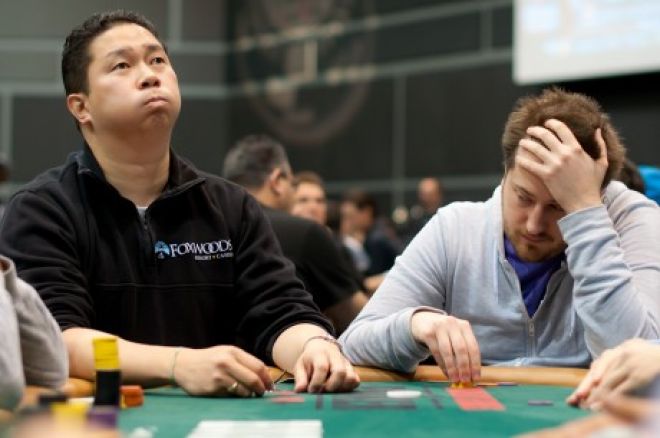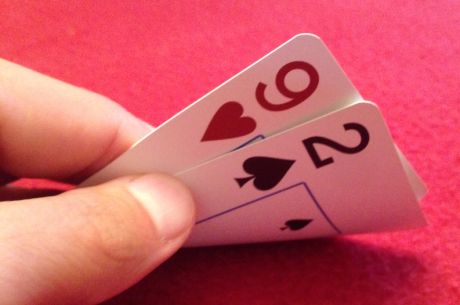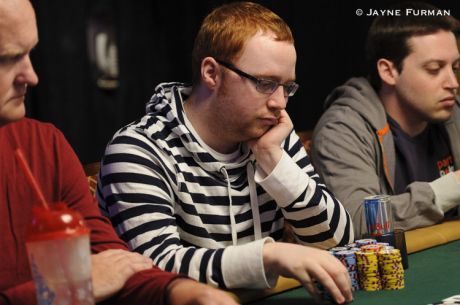Three Tips For Remaining an Active Thinker at the Tables


While poker can be filled with tense situations and exciting moments that fill you with bursts of energy, going absolutely card dead can lead to periods of stagnancy or downright boredom. These stretches when nothing particularly significant happens can allow players to fall victim to distractions which can ultimately lead to making poor, ill-considered decisions at the table.
This aspect of the game may be difficult to cope with, especially if you’re not the greatest at sitting tight in the same spot for hours on end. However, by falling prey to boredom, you’re essentially putting yourself on autopilot and allowing any potential edge you may have in a game to fade slowly away.
In order to combat this danger, you must practice the idea of being an active thinker at the table. The following are three tips to help keep you on your toes and thinking actively while playing, thereby increasing your edge and maximizing your profitability.
1. Free Yourself From Distractions
If you are a relatively new player, ditch the headphones and the iPad at the table. While you may really want to listen to a new album that your favorite artist dropped or watch a stream of a football game, or even just catch up on Words with Friends, these are all activities that are distracting you from the task at hand.
This advice also applies to playing online, where the distractions are even easier to come by. If you decide to play in a few sit-n-gos, make sure to find a time when you can do so without being having your attention divided by roommates or family. While playing, don’t go shopping on Amazon or surf around to read the latest celebrity gossip or watch the most recent viral YouTube clip.
The very point of playing poker is to make money and not be the one at the table who is bleeding chips. If you’re surrounding yourself with distractions, the likelihood of making simple mistakes increases substantially. A player who is not fully engaged with the game becomes predictable and thus easier for an experienced player to exploit.
2. Watch Your Opponents
When playing live poker you tend to be at the same table with the same people for a long period of time. Your opponents can and will fall into patterns that you can pick up on and use when making decisions about how to play hands.
Instead of letting the time fade away, an actively thinking poker player is watching opponents to get a feel for how they play. Watching plays made by the very people you are trying to win money from can give you valuable insight and information into their games. Each piece of information you have on a player gives you another weapon in your arsenal to use against that player in the future.
While watching your opponents, you can see what they do and most importantly decipher why they choose to do what they do. By constantly pondering your opponents’ play, you are forcing yourself to use the information at hand to create strategies tailored to compete against each specific opponent later down the road.
3. Always Know Where You Stand
In Kenny Rogers’ famous song “The Gambler,” he sings “You never count your money when you’re sittin’ at the table.” While the line fits well in a catchy chorus, those words do not make for good advice, practically speaking. In truth, you should always know where you stand in both a cash game and tournament setting.
In a cash game, it isn't necessarily essential to focus too intently on where you stand at any given moment, but you should be aware how many buy-ins you are in for or how much profit you have sitting in front of you. In tournaments, this advice is even more important because your place in the tournament is frequently changing as your chip stack goes up and down.
With the blinds and antes constantly increasing in tourneys, knowing the amount of blinds or bets in your stack should be one of your top priorities. Your stack size is one of the most important factors in tournament poker because it will help to dictate exactly how you should play your hands.
Not only is knowing your own stack important, but you should focus on exactly where you stand relative to others’ stacks, too, when playing each individual hand. Scoping out an opponent’s chip stack before going to battle gives you more information and a potential grasp on how your opponent may approach that hand.
Knowing your exact stack size in relation to the blinds and antes also helps you calculate the risk versus reward with each of your actions. This information is especially valuable when making decisions deep in tournaments where each blind is important.
If you always make a conscious effort (1) to get rid of distractions, (2) to keep a close watch on your opponents, and (3) to know at all times where you stand chip-wise, you will necessarily remain more alert at the tables and thus give yourself a better chance to win.
Get all the latest PokerNews updates on your social media outlets. Follow us on Twitter and find us on both Facebook and Google+!








